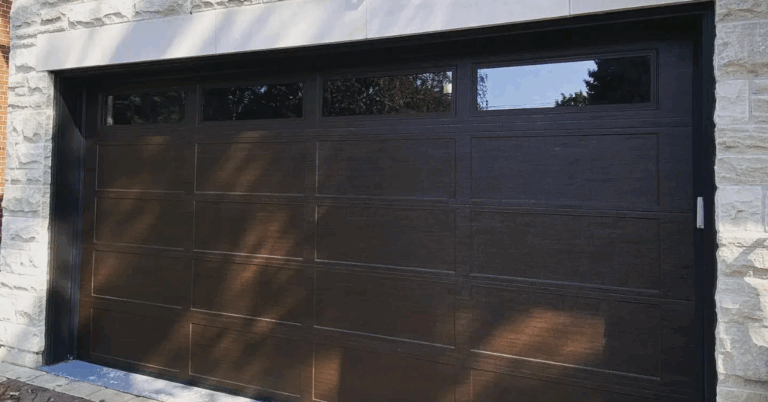Do Mobile Notaries Carry Insurance?
Whether you’re signing critical legal documents at home, in a hospital room, or even at the airport, you may wonder: do mobile notaries carry insurance to protect both themselves and their clients? As professionals who travel to various locations to notarize signatures, mobile notaries face unique risks that traditional notarial services do not. Understanding the insurance landscape for traveling notarizations is essential to ensuring your important documents are handled responsibly and with professional accountability. In this article, we’ll explore the types of coverage available and why insurance matters for traveling notarial acts. Mobile Notary
Notarizing documents in a medical setting introduces additional complexity. When performing a notarization inside a healthcare facility, the notary must navigate patient privacy concerns, strict visitation rules, and potential interruptions from medical staff. That’s why some professionals specialize in offering Hospital Notary Service — and why they often carry specific coverage to protect patient confidentiality and their own liability in a clinical environment.
Traveling to correctional institutions involves its own set of protocols. A notary who provides Jail Notary Service must comply with facility regulations, security screenings, and strict time constraints. Any error or procedural oversight in a jail setting can lead to serious consequences for all parties involved. To mitigate these risks, many mobile notaries working in correctional settings maintain robust insurance plans tailored to address the unique liabilities of that environment.
Emergencies don’t adhere to office hours, and neither do many clients. Offering Emergency Notary Services means responding to last-minute requests at odd hours, unpredictable locations, and sometimes under urgent circumstances. Given the heightened stress and potential for mistakes in these situations, carrying insurance isn’t just a recommendation—it’s a necessity for covering claims arising from hurried or complex notarizations.
For travelers and business professionals rushing to catch a flight, having access to Airport Notary Services can be a lifesaver. However, busy terminals and security checkpoints introduce logistical challenges that increase liability exposure. Notaries who frequent airports often secure insurance policies that protect against property damage, personal injury, or errors occurring in crowded, fast-paced environments.
Understanding Notary Risks and Why Insurance Matters
Mistakes can happen—even to the most diligent professionals. When a notary witnesses a signature or verifies identity, any oversight could invalidate a document, leading to costly legal disputes. Traveling between appointments exposes notaries to additional hazards: vehicle accidents, lost stamps, and document mishandling. Insurance compensates clients if a notarization is later deemed defective, and it shields the notary from financial ruin should a claim arise.
Common Risks Faced by Mobile Notaries
-
Vehicle Accidents: Driving between appointments increases exposure to traffic incidents.
-
Document Loss or Damage: Misplaced or damaged documents can result in legal and financial liability.
-
Identity Verification Errors: Accepting fraudulent identification could lead to invalidated notarizations.
-
Environmental Hazards: Extreme weather or unpredictable locations can lead to liability for injury or property damage.
In each scenario, having a well-structured insurance policy ensures that both client and notary are covered if the unexpected occurs.
Types of Coverage Available
Mobile notaries typically consider two primary forms of insurance: Errors and Omissions (E&O) insurance and General Liability insurance. While E&O covers mistakes or negligence in the performance of notarial acts, General Liability addresses third-party claims of bodily injury or property damage that might occur during travel or at a notarization site.
Types of Insurance for Notaries: A Closer Look
Selecting the right insurance requires understanding the distinct benefits and limitations of each policy type. Many notaries choose a combination of coverages to comprehensively manage their professional risks.
Errors and Omissions Insurance
Errors and Omissions insurance protects the notary against claims arising from negligent acts, errors, or omissions during the notarization process. For example, if a notarized document is later invalidated due to a notary’s oversight—such as failing to properly identify a signer—E&O can cover legal defense costs and any resulting settlements. Many state notary associations and professional organizations offer group E&O policies at discounted rates.
General Liability Insurance
General Liability insurance covers claims related to bodily injury or property damage that occur as a result of the notary’s operations. For instance, if a notary’s briefcase accidentally injures a client during an outdoor appointment, or if securing documents causes a damaged office fixture, this coverage helps pay for medical bills or repair costs. For notaries who frequently work in diverse environments—like hospitals, jails, or airports—General Liability provides crucial financial protection.
Specialty Endorsements and Additional Policies
Beyond standard E&O and General Liability, mobile notaries may opt for endorsements or supplementary policies, such as:
-
Cyber Liability: For digital notarizations or e-signature platforms, covering data breaches.
-
Business Auto Insurance: Ensuring vehicle coverage for mileage and any courier services.
-
Commercial Property Insurance: Protecting office equipment and mobile devices used during assignments.
By tailoring their coverage, mobile notaries can address risks unique to their service offerings—whether they specialize in Hospital Notary Service, jail visitations, or emergency midnight signings.
Steps to Verify Your Notary’s Insurance
Before scheduling a traveling notarization, clients can take proactive steps to ensure adequate protection:
-
Request Proof of Insurance: Ask to see certificates for both E&O and General Liability coverage.
-
Check Coverage Limits: Confirm that policy limits are sufficient for the document’s value and the scope of services.
-
Inquire About Policy Exclusions: Understand any scenarios that may void coverage, such as notarizing certain high-risk documents.
-
Verify Active Status: Ensure the policy is current and that premiums are paid.
These measures not only protect clients but also reinforce the notary’s professionalism and credibility.
General Liability vs. E&O: Which Do You Need?
For most traveling notaries, both forms of insurance are essential. However, if budget constraints limit coverage, prioritize Errors and Omissions insurance first—since the risk of an invalidated notarization poses a higher direct threat to professional reputation and legal liability. General Liability can then be added as circumstances and resources allow.
Conclusion
Mobile notaries operate at the intersection of legal compliance and customer convenience—providing vital services in homes, hospitals, jails, emergencies, and airports. In each setting, the stakes are high: a simple oversight or accidental injury can lead to significant legal and financial consequences. That’s why carrying a combination of Errors and Omissions and General Liability insurance isn’t merely optional; it’s an industry best practice that safeguards everyone involved. Whether you require a routine notarization at your office or an urgent signature on short notice, asking your traveling notary to provide proof of comprehensive insurance ensures peace of mind and professional accountability.







